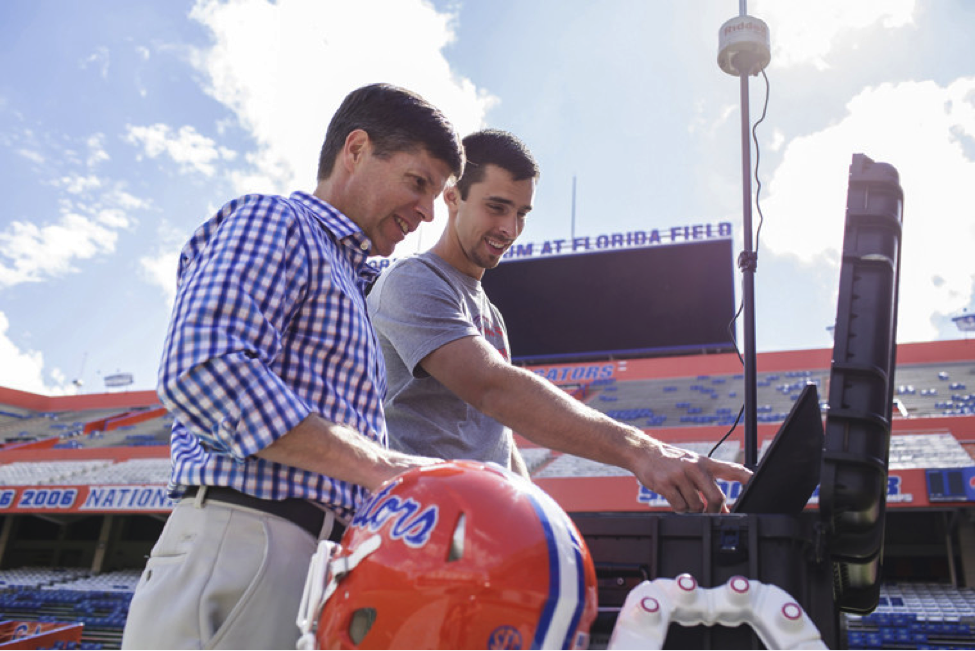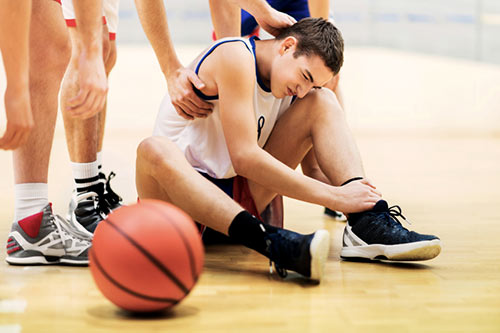New Survey Reveals NCAA Concussion Policy Needs Work
By Dan Peterson, TeamSnap's Sports Science Expert
Back in 2010, the NCAA established a concussion policy for all member institutions put in place to protect their student-athletes. While all schools want to take care of their athletes, the desire to compete can sometimes get in the way of rational decision-making when a player gets hurt. The goal of the policy was to get all schools on the same page and to monitor compliance to be sure best practices are used in a consistent manner.
Surprisingly, after four years, there hasn’t been any formal review to find out how well schools are implementing these mandated changes. Harvard health policy researchers have just released a survey that finds that while most schools have a policy in place, there’s still room for improvement.
Christine Baugh, a student in Harvard's Health Policy Ph.D. program and Emily Kroshus, a post-doctoral fellow at the Harvard School of Public Health designed a survey to be sent to all 1,066 NCAA member schools, asking them details of their implementation of the concussion policy. An impressive 907 institutions returned a completed response.
“The NCAA concussion policy, put in place in 2010, requires several things,” said Baugh. “Athletes suspected of sustaining a concussion must be removed from play and medically evaluated. If they are diagnosed with a concussion they cannot return the same calendar day and must receive clearance by a physician or physician’s designee before returning. In addition to these measures, the NCAA also requires that athletes are provided with concussion education annually and that athletes acknowledge their role in reporting concussion symptoms to medical personnel.”
While over 90 percent of the universities said they do have a concussion plan in place, as per the NCAA policy, they admitted it was still a work in progress. Specifically, concussion education programs for coaches and athletes was identified by 40% of the schools as an area that needs improvement.
“This study suggests that most, but not all, schools are meeting the minimal level set by the NCAA’s concussion policy,” said Kroshus. “Most critically, only around three-quarters of schools are providing their athletes with concussion education. Providing athletes with some information about concussions is a start, and the fact that not all institutions are meeting this relatively feasible component of the NCAA’s concussion policy is a concern.”
Another insight from the responses was that no policy is perfect and the NCAA could listen to its members on how to improve the feasibility of the directive without sacrificing player safety.
“We hope our work will encourage the NCAA and the administrators at the member schools to take seriously the need to revise the content of the NCAA concussion policy, and the need to figure out ways to encourage compliance,” Kroshus said. “The NCAA can, and in my opinion should, actively monitor that all institutions have a concussion-management plan. However, figuring out how to most effectively and feasibly encourage implementation is a much more difficult proposition given the multifaceted nature of effective concussion management.”
Their research has been published in the American Journal of Sports Medicine. Of course, the researchers know its an uphill battle for effective change.
“Changing any NCAA policy is difficult,” Kroshus said. “That is not to say that change isn’t needed or should not be attempted, but it’s important to recognize the barriers and challenges to quick solutions. Not many people are aware that the NCAA is a member-driven organization and that for any change in any policy to be enacted it has to be voted on by all the member schools. This process, unfortunately, takes time and takes all stakeholders being on board.”
NEW! Free Sports Organization Resources
All of TeamSnap's ebooks, articles, and stories in one place. Access Now
Similar Articles:

HITS Helps Researchers Understand Concussions
By Dan Peterson, TeamSnap's Sports Science Expert Attacking…
Read More
How to Recognize the Signs of a Concussion for Parents
Think you know concussions? Here’s a little quiz for…
Read More

Guidelines To Reduce Overuse Injuries In Young Athletes
By Dan Peterson, TeamSnap’s Sports Science Expert…
Read More
